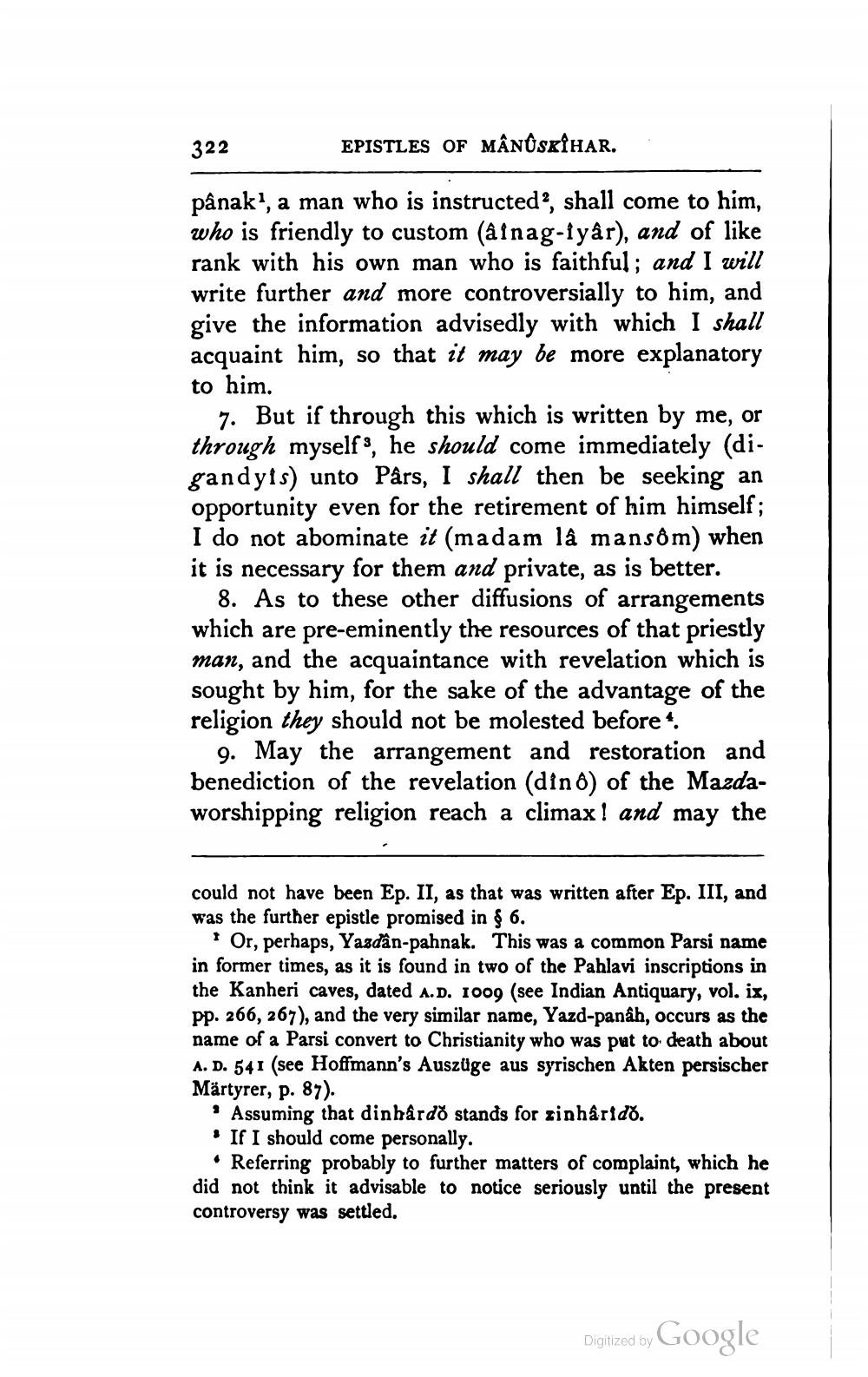________________
322
EPISTLES OF MÂNŮSKİHAR.
pânak", a man who is instructed?, shall come to him, who is friendly to custom (dinag-iyâr), and of like rank with his own man who is faithful; and I will write further and more controversially to him, and give the information advisedly with which I shall acquaint him, so that it may be more explanatory to him.
7. But if through this which is written by me, or through myself 3, he should come immediately (digandyis) unto Pârs, I shall then be seeking an opportunity even for the retirement of him himself; I do not abominate it (madam là mansôm) when it is necessary for them and private, as is better.
8. As to these other diffusions of arrangements which are pre-eminently the resources of that priestly man, and the acquaintance with revelation which is sought by him, for the sake of the advantage of the religion they should not be molested before.
9. May the arrangement and restoration and benediction of the revelation (din) of the Mazdaworshipping religion reach a climax! and may the
could not have been Ep. II, as that was written after Ep. III, and was the further epistle promised in $ 6.
* Or, perhaps, Yasdân-pahnak. This was a common Parsi name in former times, as it is found in two of the Pahlavi inscriptions in the Kanheri caves, dated A.D. 1009 (see Indian Antiquary, vol. ix, pp. 266, 267), and the very similar name, Yazd-panâh, occurs as the name of a Parsi convert to Christianity who was put to death about A. D. 541 (see Hoffmann's Auszüge aus syrischen Akten persischer Märtyrer, p. 87).
• Assuming that din hârdo stands for zin hârido. • If I should come personally.
• Referring probably to further matters of complaint, which he did not think it advisable to notice seriously until the present controversy was settled.
Digitized by G
oogle




